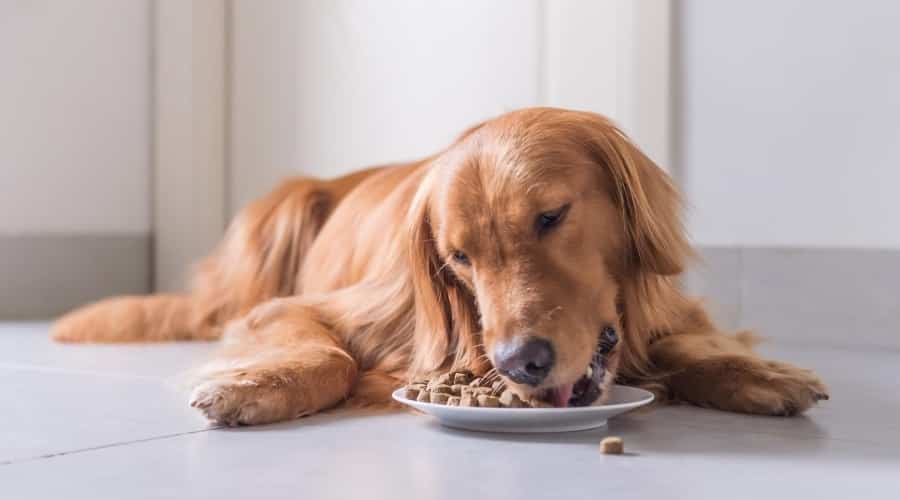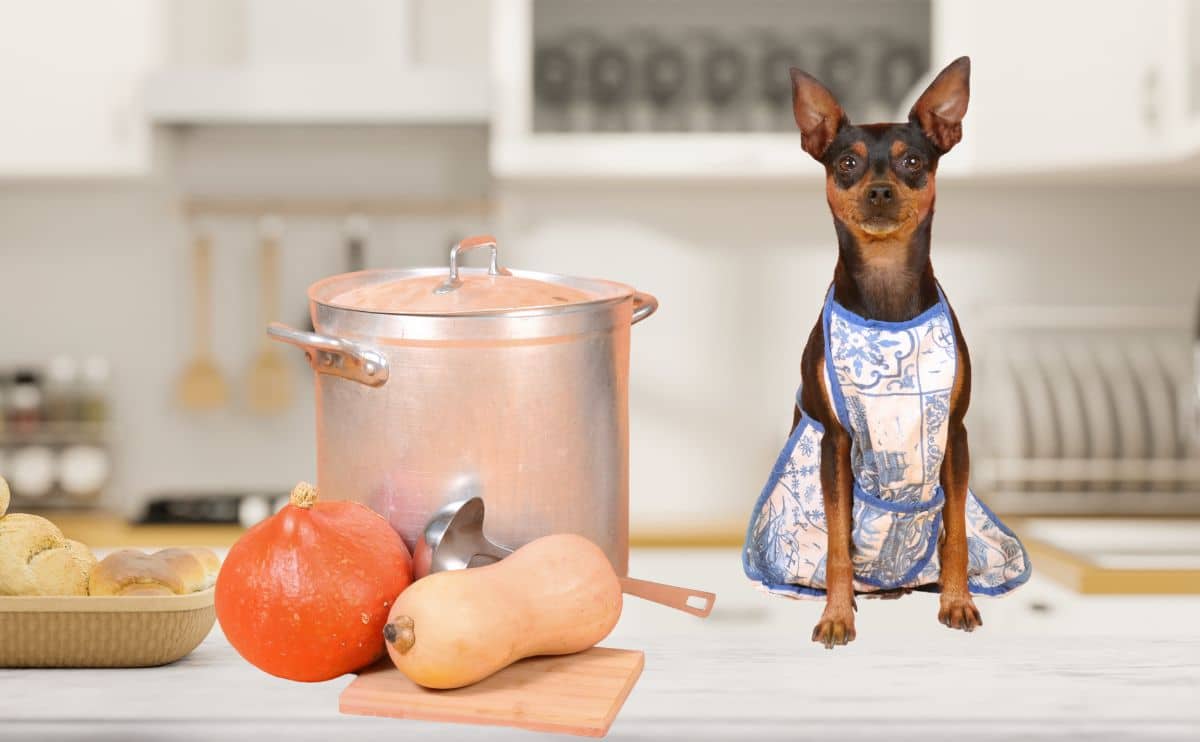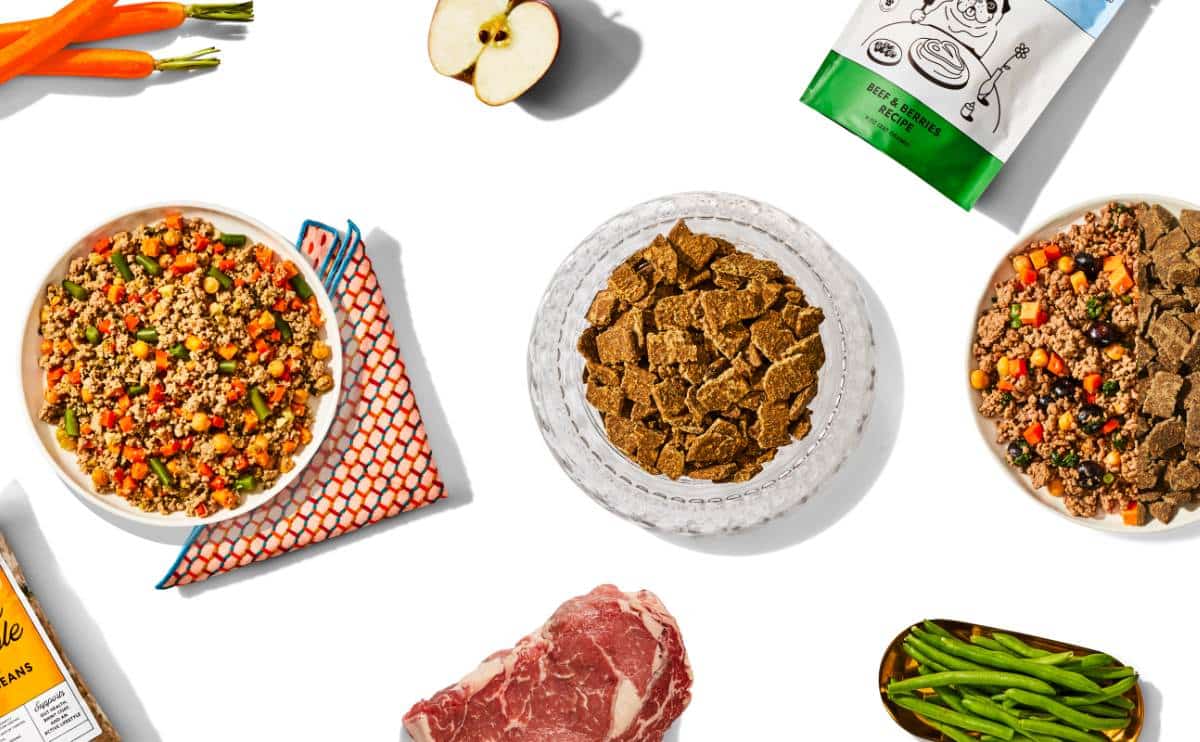My Dog Just Ate A Stick Of Butter: What Should I Do Next?
When you purchase through links on our site, we may earn a commission. Here’s how it works.
Did your dog just eat a stick of butter when you weren’t looking? Butter is a household staple that comes in various forms. As with many common foods, it is often offered to, or stolen by our dogs. In this article, we will explore what butter is and whether it is a safe and healthy product to give to our dogs.
Butter is dairy-based and is made by churning fatty milk or cream. Other similar products include margarine and spread, which are plant-oil based alternatives. All of these products are high in fats, which if eaten in excess, can be harmful to your dog’s health. This is because fats are usually the most calorie-dense parts of a diet. Butters and spreads are typically 500-800 calories (kcal) per 100g.
However, being calorie-heavy is not necessarily a bad thing. Foods that are calorie-dense aren’t harmful as long as they are part of a balanced diet, and used in moderation. Also, don’t forget that a number of essential vitamins (vitamins A, D, E and K) and important antioxidants (Omega 3 and 6) are also fat-based. These dietary elements are found in fats and contribute heavily to your metabolism and normal bodily processes.
Table of Contents
Why Dogs Love Butter
Dogs, like many animals, tend to like foods that are high in calories. After all, it’s only recently that there has been enough food to go around and excess calories have become a concern. Before that they were essential, and high-energy foods would have been the best foods to eat. In addition, butter is often salty, which makes it taste delicious, too. Don’t forget that what the butter has been spread on may be delicious, too. Buttered bread in particular is a canine favorite!
Is Butter Bad For Dogs?

Butter and spreads are not in themselves particularly harmful to dogs but should not be fed in large amounts. There are a number of reasons for this. Butter is an edible substance, so it’s completely different than if your dog were to eat Vaseline or something else that could be harmful.
First, butter is high in calories and therefore regular or large amounts will make dogs gain weight and become obese. Obesity is a growing epidemic in pet dogs, just as it currently is in humans, and too many calories in the diet is the main cause of weight gain. The majority of pet dogs are now overweight. Just as in humans, being overweight will predispose dogs to becoming diabetic and arthritic.
Second, most adult dogs are lactose-intolerant, and so large amounts of dairy-based products can cause stomach upsets, bloating and diarrhea. Lactose is the sugar in milk and dairy products, and dogs can only digest it when they are puppies. Large amounts of lactose in adult animals are not healthy.
Lastly, the higher fat content of butter can be damaging to your dog’s pancreas. Sudden large amounts of fat can be linked with pancreatitis (inflammation of the pancreas). This is a painful and potentially life-threatening condition. The symptoms of pancreatitis include stomach pain, vomiting and not wanting to eat. Pancreatitis is commonly diagnosed in dogs that have recently had a fatty meal- such as chowing down on a full stick.
Butter may also be given on top of other food items that can be dangerous in themselves. Small amounts of bread or toast are not a problem for dogs, but corn cobs for example can be a significant threat to canine health. Sweet corn is fine, but the internal cob must never be given to dogs.
Can Butter Kill My Dog?
It is very unlikely that butter would kill a dog. Butter isn’t toxic to dogs like Grapes or some different nuts can be. Most dogs will be fine after eating small to moderate amounts. However, if your dog eats a large amount of butter it’s possible that they will get pancreatitis which can occasionally be fatal. This is rarer, and unlikely to happen to your dog. As always, we recommend you contact your veterinarian to be on the safe side if your dog ate a considerable amount.
What If My Dog Eats A Full Stick?

Small amounts of butter are not a problem, but if you discover that your dog has eaten a full stick of butter or spread, then here is what to do.
1. Take the butter away to prevent any more from being eaten.
2. Try and establish how much has been eaten, as accurately as you can.
3. Find out what time it was consumed to the best of your ability.
4. Contact your local veterinarian and pass on as much information as you can.
5. Follow your veterinarian’s advice on what to do next.
Your veterinary clinic may advise keeping a close eye on your dog. They may tell you to watch your pup, at least initially, depending on the amount eaten and your dog’s medical history. Dogs with known sensitive stomachs may require more care and attention than others! The symptoms to watch out for include nausea, vomiting, not wanting to eat, and diarrhea. These symptoms will usually appear within four hours of consumption.
If your veterinarian is concerned about the impact the butter may have, or if your dog is already showing symptoms suggesting problems are developing, then an examination and investigation will be necessary. The sooner this is arranged and sorted, the sooner the problem can be properly addressed.
My Dog Ate Butter: What Will My Vet Do?

If your dog has only just eaten the butter within the last four hours, your veterinarian may be able to give an injection to induce vomiting. This will bring the butter up and stop it causing further problems deeper inside the digestive system. It’s not a good idea to induce vomiting in dogs at home without discussing it with your vet first. Vomiting can do more harm than good in some cases.
If your pup has eaten the butter more than four hours ago, it is already too far into the digestive system to induce vomiting. Most dogs will cope well with this. They may have a mildly upset stomach (perhaps a little vomiting or diarrhea) or no symptoms at all. If your canine companion is known to have a sensitive tummy or other digestive issues, then symptoms may be more severe and medical help may be needed.
Your veterinarian will perform a clinical examination to assess for any pain, dehydration, fever or other problems. In some cases, such as those dogs with suspected pancreatitis, blood tests may be recommended. Dogs may need some supportive and symptomatic help in the hospital, including intravenous fluids via a drip, and medication to relieve pain and nausea. Most dogs will make a full recovery with the right help, so always ask for help at an early stage.
Could Pet Insurance Help?
If your pet insurance covers exam fees and your dog needs to be examined, there is a good chance your policy will reimburse those costs based on your policy details. However, if you are a new customer, vet expenses will not be covered until after your policy’s defined waiting periods, so signing up once you have an existing health concern is not going to help this time. Pre-existing conditions are not covered by any current pet insurance plans.
This is why it is a great idea to sign up for a pet insurance policy when your pet is young and relatively healthy to ensure you will be covered when you need it most.
Frequently Asked Questions
Do you still have some additional questions? When your pup eats something unexpected, it’s often nerve-wracking while you wait for them to recover. Find out more about dogs and butter in these commonly asked questions.
My dog ate butter and is throwing up. What should I do?
First and foremost, follow the steps above. Make sure there’s no access to any additional butter that could contribute to making them sick. Once you’ve secured the area around them, call your veterinarian. They will likely tell you to watch your pup for the next several hours to make sure it doesn’t continue.
My dog ate butter and has diarrhea. What should I do?
This is normal. Butter has a high-fat content, and since most canines are lactose intolerant, even the hardiest dogs will often get the runs. As long as it doesn’t continue for more than two or three days, your pup should be just fine.
What if my dog ate butter with the wrapper?
This will depend on the size of your canine companion, and the material the wrapper was made of. If you have a large breed, and the wrapper was waxed paper, it will likely just go through them and come out the other side later that day or the next. If you have a small dog, you’ll want to watch them for signs of bowel obstruction. While they are more likely to get a bowel obstruction from a large object like a corn cob, you’ll still want to watch and make sure your furry friend doesn’t have any signs of an intestinal blockage.
My dog just ate an entire stick of butter. Is that bad?
It’s more inconvenient, and your dog may have loose stools inside or outside your home. It’s not recommended that you feed your pup foods that contain lactose that are this calorie-dense regularly. If you have a larger dog, an entire stick isn’t likely to do much damage. If you have a smaller pup, you should contact your veterinarian.
Should I use butter to give my dog medicine or pills?
Butter can be useful to help give tablets or medication, by making it taste and smell more appetizing. However, it should only be used in small quantities. For this purpose, and you should check with your veterinary clinic first. Some medications need to be given on an empty stomach for the best results.
Final Thoughts
Butter and spreads are common household food items that can be accessed or provided to pet dogs. In small amounts, they are not typically dangerous for dogs. Indeed, they can be helpful in making medication more appealing to your dog in some circumstances! These foodstuffs are also a source of important vitamins and antioxidants, which make up part of a balanced diet.
However, large amounts of butter can cause obesity, stomach upsets, and even inflammation of the pancreas (pancreatitis). This can be a dangerous condition. With this in mind, if your dog has eaten a large amount of butter or spread, you should contact your local veterinary clinic for advice at an early stage. Even if your pup just has a sensitive stomach, it’s a good idea to call your vet, just to be safe.



